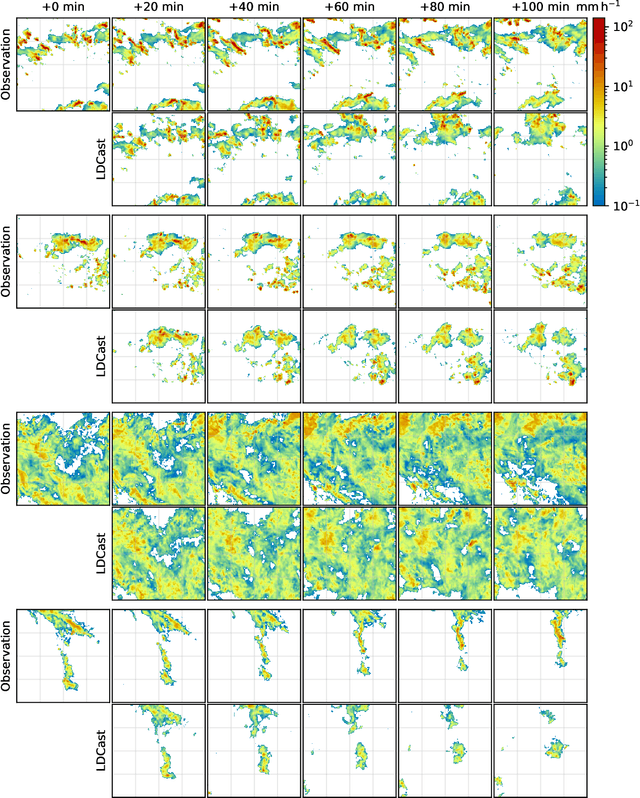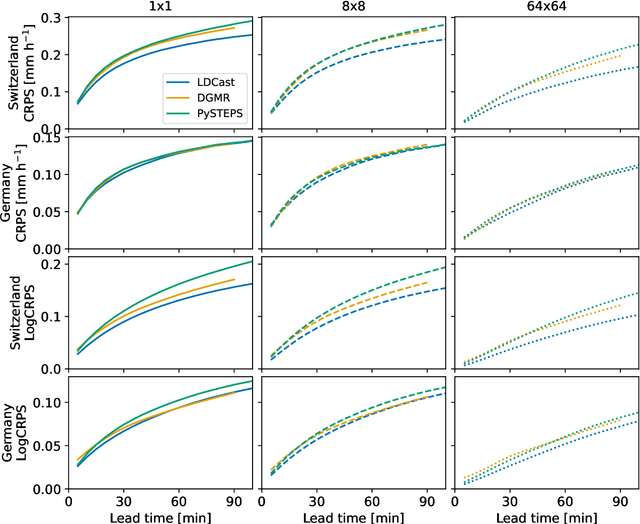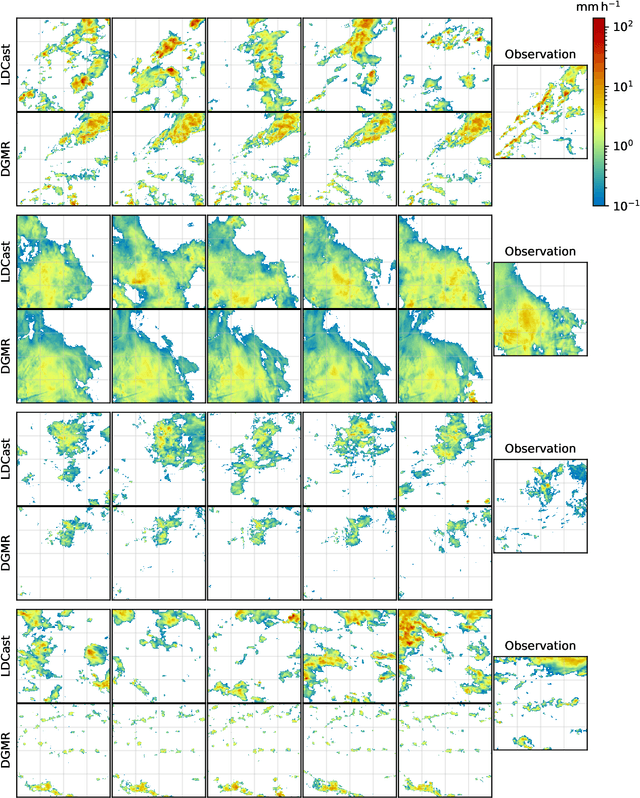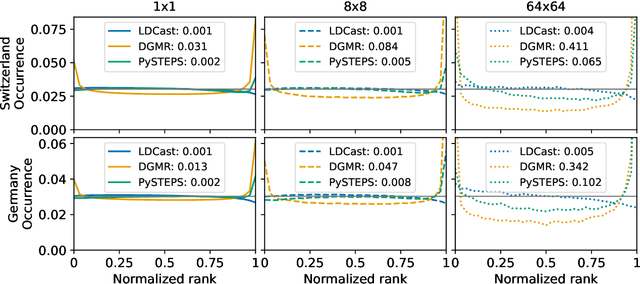Latent diffusion models for generative precipitation nowcasting with accurate uncertainty quantification
Paper and Code
Apr 25, 2023



Diffusion models have been widely adopted in image generation, producing higher-quality and more diverse samples than generative adversarial networks (GANs). We introduce a latent diffusion model (LDM) for precipitation nowcasting - short-term forecasting based on the latest observational data. The LDM is more stable and requires less computation to train than GANs, albeit with more computationally expensive generation. We benchmark it against the GAN-based Deep Generative Models of Rainfall (DGMR) and a statistical model, PySTEPS. The LDM produces more accurate precipitation predictions, while the comparisons are more mixed when predicting whether the precipitation exceeds predefined thresholds. The clearest advantage of the LDM is that it generates more diverse predictions than DGMR or PySTEPS. Rank distribution tests indicate that the distribution of samples from the LDM accurately reflects the uncertainty of the predictions. Thus, LDMs are promising for any applications where uncertainty quantification is important, such as weather and climate.
 Add to Chrome
Add to Chrome Add to Firefox
Add to Firefox Add to Edge
Add to Edge